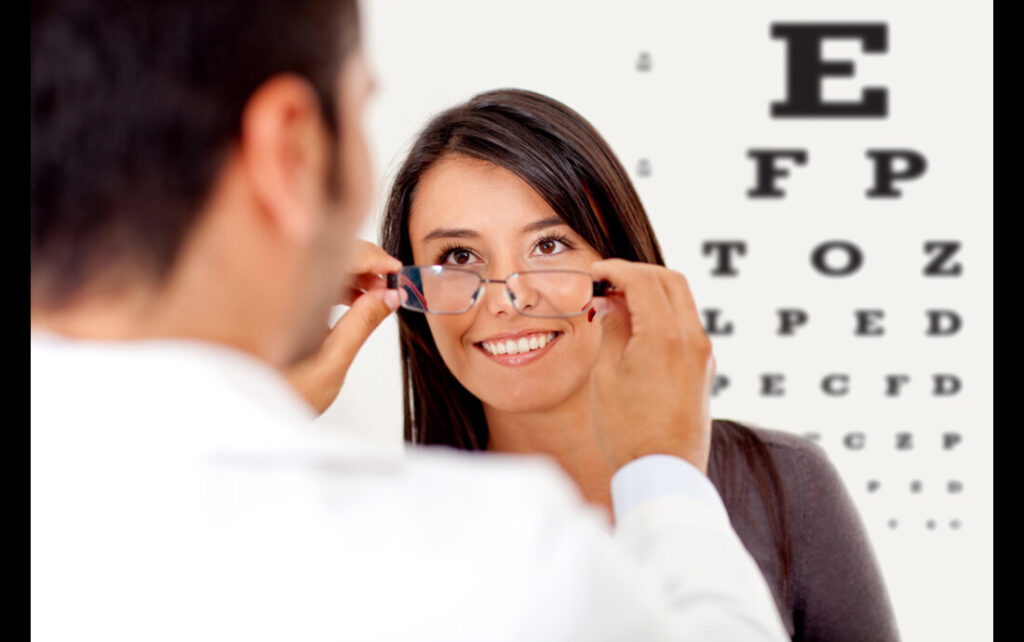Macular degeneration is a leading cause of vision loss among older adults, affecting the macula, the central part of the retina responsible for sharp and detailed vision. As researchers continue to investigate the causes and risk factors of this eye disease, one question that arises is whether dehydration plays a role in its development or progression.
This article explores the connection between dehydration and macular degeneration, delving into the impact of hydration on eye health, potential mechanisms linking the two, and practical strategies to maintain optimal hydration for preserving vision.
Table of Contents
Understanding Macular Degeneration:
Age-related macular degeneration is categorized into two types: dry (non-exudative) AMD and wet (exudative) AMD. Dry AMD is the more common type and is characterized by the slow degradation of macular cells and the formation of drusen, yellow deposits of cellular waste. Wet AMD, though less common, is much more severe and involves abnormal growth of blood vessels that can lead to sudden vision loss.
The causes of AMD are unknown; yet, the following factors are considered to increase the risk: old age, genetics, smoking, high blood pressure, poor diet, and prolonged exposure to UV light. Though these are well-established risk factors, there is growing interest in the role hydration plays in macular health.
Why Hydration Matters to the Eyes?
Water is necessary for almost every function in the body, including the health of the eyes. A human eye requires a sufficient supply of fluids to function properly. Dehydration can cause a range of problems, from dryness and irritation of the eyes to long-term damage in some cases. The retina, including the macula, needs proper hydration to ensure the delivery of nutrients and oxygen through blood circulation.
How Dehydration Could Impact Macular Degeneration?
Though direct scientific evidence linking dehydration to macular degeneration is still limited, several mechanisms suggest a plausible connection:
1. Reduced Blood Circulation and Nutrient Delivery:
Dehydration can lead to thickened blood and reduced circulation, limiting the supply of oxygen and nutrients to the eyes. Poor blood flow to the retina can exacerbate oxidative stress, potentially accelerating the progression of AMD.
2. Increased Oxidative Stress and Inflammation:
Chronic dehydration might exacerbate the problems of oxidative stress and inflammation, which are primary causes for developing AMD. Lack of water results in poor capability to quench free radicals in the body system and regenerate affected cells, resulting in the degradation of the macula.
3. Tear Film and Dry Eye Syndrome:
Dehydration can cause dry eye syndrome, which is a condition of insufficient tear production. Although dry eye syndrome is a separate entity from AMD, both conditions exhibit inflammation and oxidative stress, meaning that chronic dehydration may indirectly work as a risk factor.
4. Implication in Detoxification Processes:
The eyes, like other organs, rely on efficient detoxification to remove metabolic waste. Water plays a crucial role in this process, and dehydration may impair the body’s ability to eliminate harmful substances that contribute to macular damage.
Scientific Evidence and Studies:
While direct research on dehydration and AMD is sparse, studies on general hydration and eye health provide valuable insights. Research has shown that:
- Proper hydration supports retinal function and reduces oxidative damage.
- Blood viscosity affects microcirculation in the retina, with dehydration potentially exacerbating circulatory problems.
- Chronic systemic inflammation, which dehydration may contribute to, is a well-known factor in the progression of AMD.
A study published in Investigative Ophthalmology & Visual Science showed that poor hydration status was associated with increased oxidative stress markers in the eyes, further suggesting a potential link between dehydration and retinal diseases.
Practical Strategies for Maintaining Hydration and Eye Health:

Given the potential risks of dehydration, maintaining proper hydration is essential for overall health and may contribute to macular protection. Here are some practical strategies to ensure adequate hydration:
1. Drink Enough Water Daily
The general recommendation is to consume at least 8 glasses (2 liters) of water per day, though individual needs vary based on factors like climate, activity level, and overall health. Older adults, who are at higher risk of AMD, should pay particular attention to staying hydrated.
2. Incorporate Hydrating Foods
In addition to drinking water, consuming foods with high water content—such as cucumbers, watermelon, oranges, and leafy greens—can help maintain hydration.
3. Limit Dehydrating Beverages
Excessive consumption of caffeinated and alcoholic beverages can contribute to dehydration. If consumed, these should be balanced with increased water intake.
4. Use a Humidifier
Dry environments, especially those with air conditioning or heating, can contribute to dehydration. Using a humidifier can help maintain adequate moisture levels in the air and prevent dry eyes.
5. Follow a Nutrient-Rich Diet
A diet rich in antioxidants, omega-3 fatty acids, and essential vitamins (such as vitamins A, C, and E, and zinc) can help support eye health. The Mediterranean diet, which emphasizes fruits, vegetables, healthy fats, and fish, has been associated with a lower risk of AMD.
6. Monitor Hydration Status
Signs of dehydration include dry mouth, dark urine, fatigue, dizziness, and headaches. If these symptoms occur frequently, increasing water intake is advisable.
Dehydrated Eyes Symptoms:
When the body lacks sufficient water, the eyes may not produce enough tears, leading to dryness and irritation. Common symptoms of dehydrated eyes include:
- Dryness and discomfort
- Redness and irritation
- Blurry vision
- Sensitivity to light
- A gritty or scratchy sensation
Dehydration of Vitreous Gel Symptoms:
The vitreous gel inside the eye, responsible for maintaining its shape and supporting retinal health, also relies on hydration. When dehydrated, the vitreous gel can shrink or lose consistency, leading to symptoms such as:
- Floaters (small specks or cobweb-like shapes in vision)
- Increased risk of retinal detachment
- Blurry or distorted vision
Does Drinking Water Help Blurry Vision?
Yes, drinking water can help alleviate blurry vision caused by dehydration. Proper hydration ensures the eyes remain lubricated and the vitreous gel maintains its consistency, reducing the likelihood of visual disturbances.
Thrombosis of Central Retinal Vein Symptoms:
Dehydration can contribute to poor circulation, increasing the risk of thrombosis in the central retinal vein. Symptoms of this condition include:
- Sudden vision loss or blurriness
- Dark spots in vision
- Pain or pressure in the eye
How Does Dehydration Affect Body Temperature?
Water is essential for regulating body temperature. Dehydration impairs the body’s ability to cool itself, leading to overheating, fatigue, and dizziness. High body temperature can also affect circulation, potentially impacting eye health.
Is Drinking Water Good for Your Eyesight?
Yes, drinking adequate water benefits eyesight by:
- Keeping eyes hydrated and reducing dryness
- Supporting proper blood circulation to the retina
- Maintaining the health of the vitreous gel
- Reducing the risk of eye strain and fatigue
Thrombosis of the Central Retinal Vein:
Dehydration can negatively impact eye health by reducing blood circulation and causing dryness, which may exacerbate conditions like macular degeneration. It can also affect the vitreous gel, increasing the risk of floaters and retinal issues. While dehydration alone may not directly cause macular degeneration, staying hydrated supports overall eye function and retinal health.
Benefits of Drinking Water for Eyes:
Maintaining proper hydration provides numerous benefits for eye health, including:
- Reduced dryness and irritation
- Clearer vision
- Lower risk of floaters and retinal issues
- Improved blood flow to the retina
- Better overall eye comfort and function
Conclusion:
While more research is needed to link dehydration directly to macular degeneration, it’s clear that staying hydrated is important for eye health. Dehydration can lead to problems like poor blood flow and inflammation, which might make macular degeneration worse. Drinking enough water, eating well, and living a healthy lifestyle can help protect your eyes and keep them working well.










Discussion about this post